How to Recycle IBC Totes: A Complete Guide
A clear, step-by-step guide to turning used totes into new materials
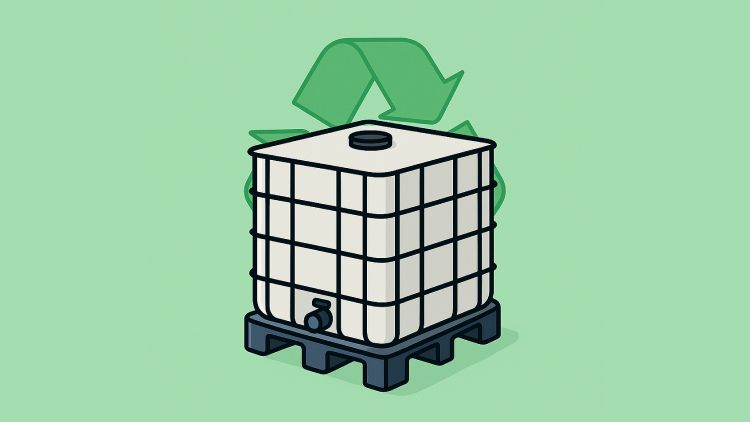
Key takeaways
- Many recyclers handle everything—often with free pickup—plus documentation and compliance; make totes RCRA-empty and share SDS/photos to speed approval.
- Most “recycling” is reconditioning or rebottling; true recycling (separating HDPE and steel into raw materials) is used when totes can’t be reused.
- Programs can cut waste and cost—and may even pay for reusable totes—while supporting a safer, more circular industrial supply chain.
Recycling Intermediate Bulk Containers (IBCs) — also known as IBC totes — is easier than most businesses realize. Many companies now handle the entire process for you, from pickup and cleaning to reconditioning, disposal, and recycling. These services also assist with regulatory compliance, waste management, and environmental documentation, making tote recycling a seamless part of your sustainability efforts.
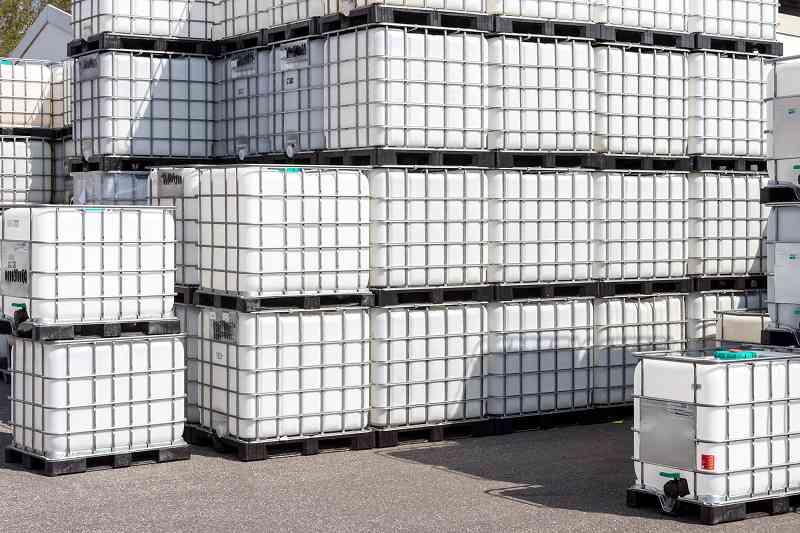
Companies like Verde Trader, Centurion Container, and Schütz offer free IBC tote pickup for manufacturers, farms, and industrial facilities. Some even provide payouts or credits for totes that can be reconditioned/rebottled or resold. These programs help reduce waste, lower costs, and support a more circular industrial supply chain. Before resale, every reconditioned tote must meet strict safety and quality standards, ensuring reliability and compliance for future use.
What are IBC totes?
IBCs are reusable containers designed for storing and transporting liquids, chemicals, and food products safely and efficiently. Most totes feature a high-density polyethylene (HDPE) bottle encased in a steel cage with a pallet base made of wood, metal, or plastic. This design provides strength, durability, and chemical resistance, while allowing easy handling with forklifts or pallet jacks.
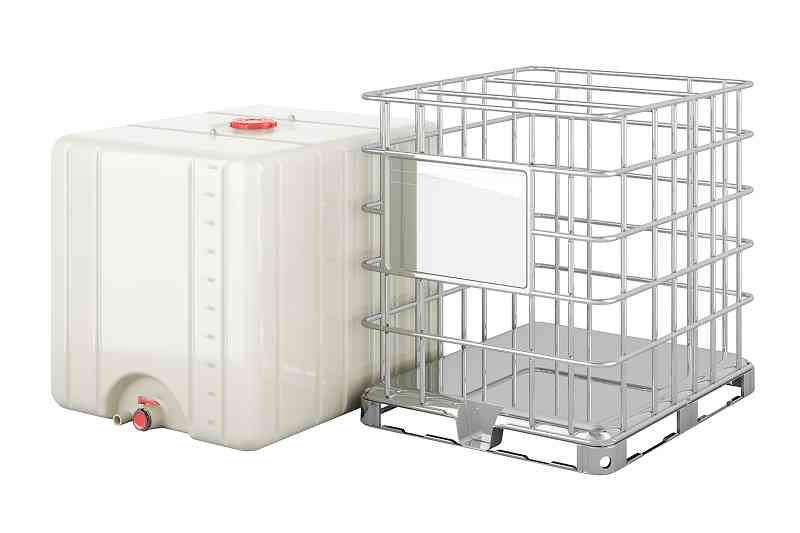
These versatile containers are used across industries — from food and beverage to pharmaceuticals, automotive, and chemicals — because they support repeated use, regulatory compliance, and environmental responsibility.
Step-by-step: how to recycle IBC totes
1. Ensure the tote Is empty
Before recycling, the tote must be RCRA-empty, meaning less than 0.3% of its original contents remain. Close all valves and ensure no free-flowing liquid is inside.
Tip: The same rule applies to drums and other industrial containers.
2. Identify previous contents
Recycling companies must know what the tote previously held before accepting it. Provide a Safety Data Sheet (SDS) or product name.
- Totes that held hazardous or oil-based materials may require special cleaning.
- Food-grade totes are typically easier to recondition and reuse.
3. Take photos before pickup
Clear images of your totes help recyclers confirm their quantity, condition, and previous use, ensuring a smooth and compliant pickup process.
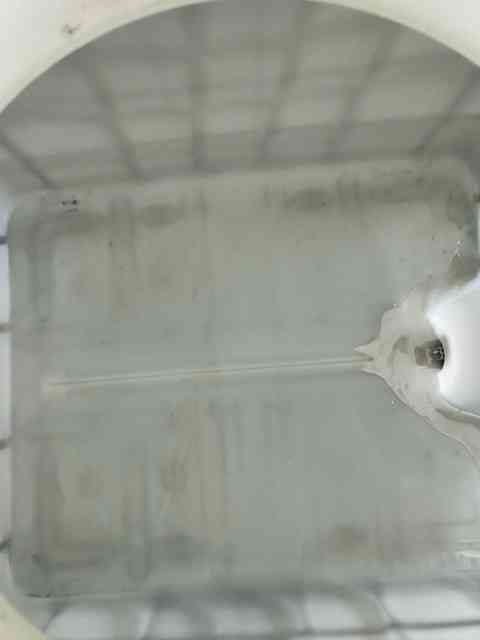
A photo of the inside of a tote.

A photo of one of the valves.
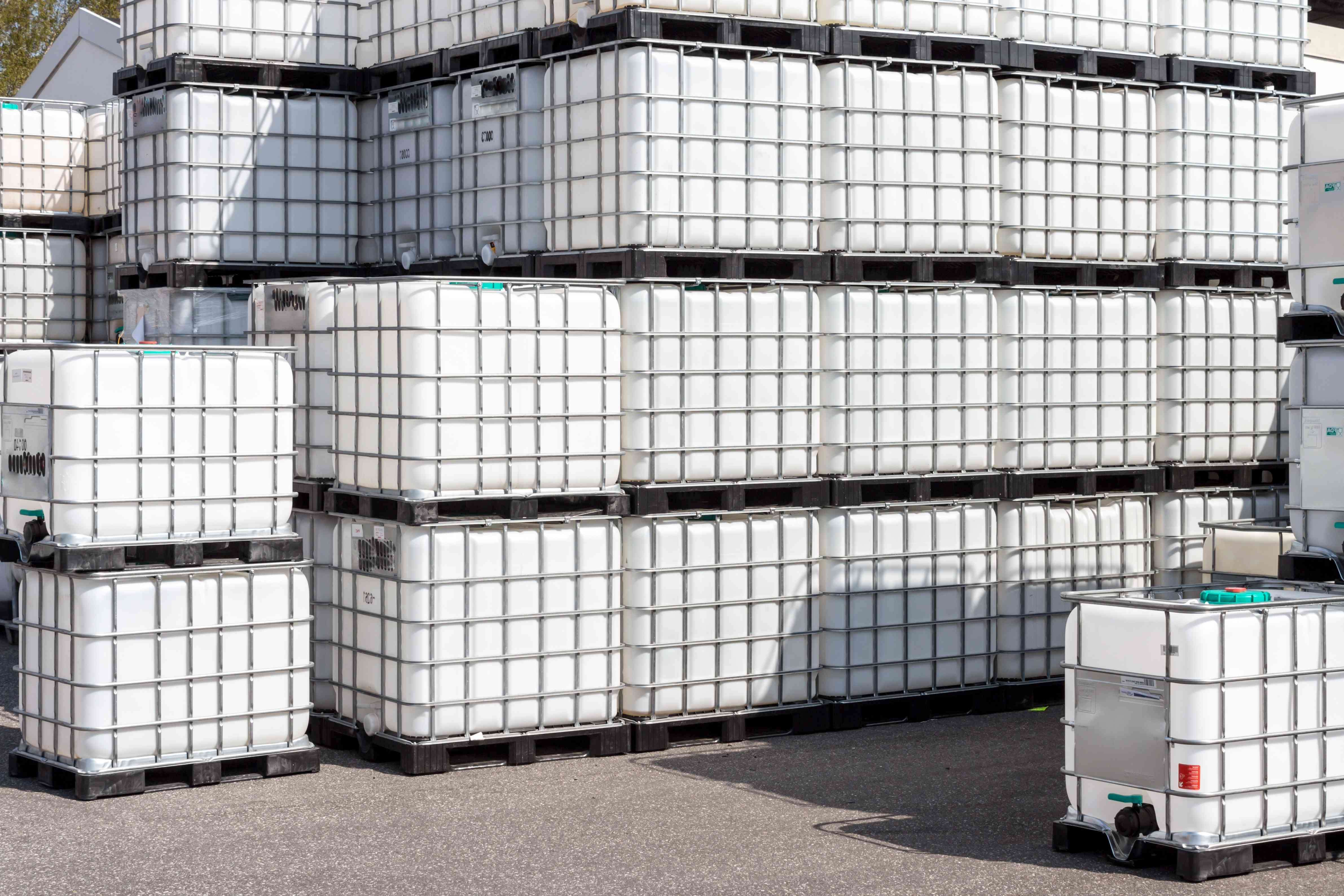
A group photo of your totes.

Photos or copies of your safety data sheets.
4. Schedule a pickup
Reach out to a trusted IBC tote recycler such as Verde Trader, Centurion Containers, or Schütz. Most offer free pickup and handle loading, freight, and documentation. Many also offer drum removal and other container recycling options for full-service logistics.

5. Inspection & reconditioning
Once collected, totes in good condition are inspected, cleaned, and rebottled — a process known as reconditioning. This extends a tote’s lifespan and reduces plastic waste. Each tote is tested to meet EPA and DOT standards before re-entering the market.
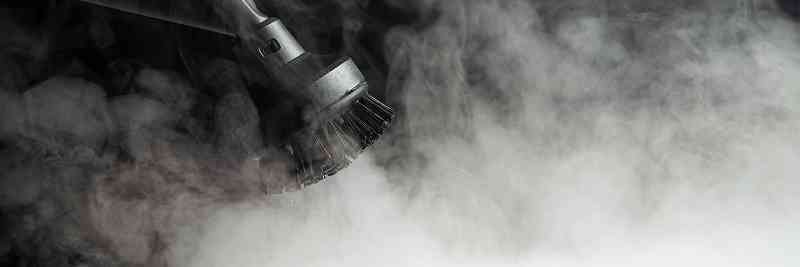
6. Material recycling (for damaged totes)
If a tote is too damaged to reuse, recyclers will:
- Separate the HDPE bottle from the metal cage.
- Shred and clean the HDPE into recycled plastic resin.
- Send the steel cage to a metal recycler for reuse.
Even damaged totes contribute to the circular economy through proper recycling.
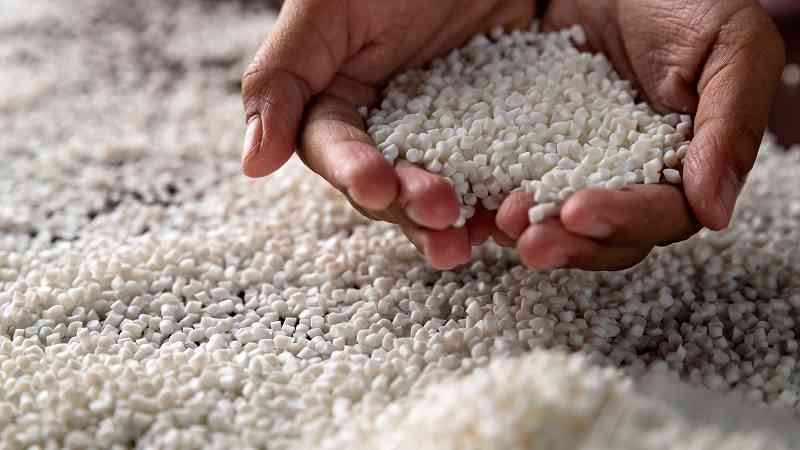
What does it mean to recycle IBC totes?
The term IBC tote recycling can mean several different things. Many people confuse recycling with refurbishing and rebottling, when in fact, true recycling involves breaking down the metal IBC cage and plastic bottle into raw materials that can be reprocessed.
In most cases, a service like the one we provide at Verde Trader is referred to as “IBC tote recycling,” but it’s actually a reconditioning or rebottling process. Lightly used IBC totes are collected, inspected, and either cleaned or rebottled so they can be safely put back into circulation. These services are often described as “return,” “collection,” or even “recycling,” even though the tote itself isn’t being fully recycled.
When a container is too damaged or contaminated to be put back into circulation, a true tote recycler separates the plastic bottle from the metal IBC cage. The components are cleaned, shredded, and sent to facilities that recycle the raw materials—allowing the metal and plastic to re-enter the production cycle.
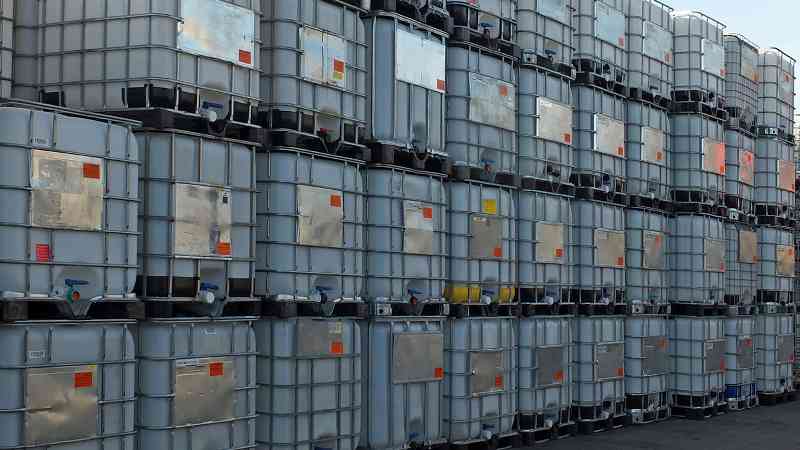
IBC tote recycling, removal, return, free pickup & disposal: what’s the difference?
Disposal services
Refers to eliminating used IBC totes that can’t be reconditioned or recycled. Depending on the condition, used totes may be broken down, sent to landfill, or incinerated if contaminated with hazardous materials.
Many businesses use removal and recycling interchangeably. In reality, removal is the first step in the recycling process. A recycler or service provider collects and transports used totes from your facility — often offering free pickup for convenience. Whether you’re a corporation or an individual looking to dispose of used containers, you’ll typically contact an IBC tote recycler to handle the removal.
IBC recycling
IBC tote recycling involves cleaning, shredding, and processing components — such as the HDPE bottle and steel cage — into raw materials that can be used to manufacture new products. This process helps reduce waste, conserve resources, and promote a sustainable circular economy.
However, the primary goal of an IBC tote recycler is to collect reusable totes that can be reconditioned or rebottled for resale. When a recycler must break down containers for scrap metal or HDPE, it’s typically less profitable due to the low market value of raw plastic and steel. The true value lies in reusable totes, which can be restored, certified, and returned to circulation for continued use.
Free pickup
Free tote pickups refers to the free collection of reusable totes to be reconditioned and rebottled for resale. Typically a tote recycler will not charge freight to pick up the empty containers.
IBC tote return programs
Also known as tote swap programs, these services allow customers to return usable empty IBCs to reconditioners in exchange for reconditioned or rebottled totes. The returned totes are cleaned, inspected, and resold at a reduced price since the customer provides quality, reusable containers. This system helps businesses save money while promoting reuse and sustainability.
Reconditioning and rebottling
The primary goal of any IBC tote recycler or reconditioner is to acquire quality, reusable totes that can be refurbished or rebottled. Without a consistent supply of good totes, recyclers cannot operate profitably — as the real value lies in reuse, not raw material recovery.
Reconditioning involves the inspection, cleaning, and restoration of IBC totes that remain structurally sound. Each tote is washed, tested, and certified to meet industry safety and compliance standards before being reintroduced into circulation. This method extends the container’s service life while reducing waste and environmental impact.
Rebottling combines a new HDPE inner bottle with a used steel cage, creating a like-new tote that meets UN/DOT standards for reuse. Rebottled totes are ideal for applications requiring high cleanliness or product purity, such as food-grade or pharmaceutical use.
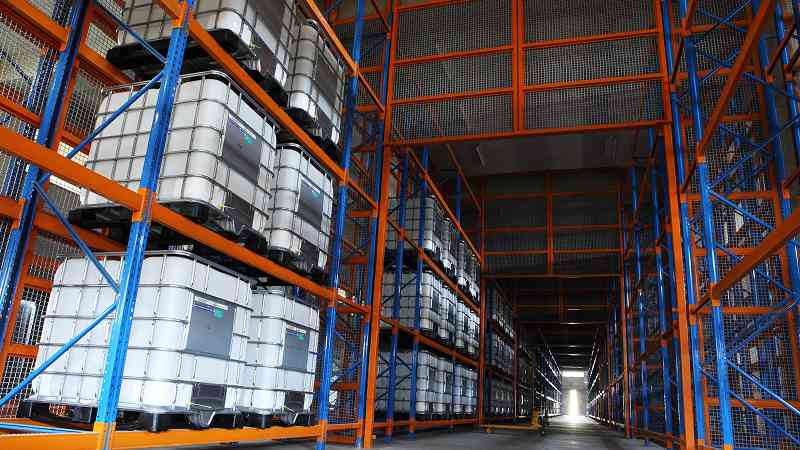
Environmental benefits of recycling IBC totes
Recycling intermediate bulk containers helps businesses reduce waste, save resources, and support a more sustainable, circular economy.
- Conserves natural resources
- Recycling reduces the need for new plastic made from petroleum.
- Uses less energy and lowers greenhouse gas emissions.
- Reduces landfill waste
- Keeps plastic and metal IBC parts out of landfills.
- Helps businesses follow environmental regulations.
- Prevents pollution
- Proper cleaning and recycling prevent leaks of chemicals, oils, and fuels.
- Protects soil and groundwater from contamination.
- Supports the circular economy
- Recycled HDPE and steel are reused instead of discarded.
- Extends the life of industrial packaging and reduces raw material demand.
- Benefits key industries
- Food industry: Ensures totes are clean and safe for storing dairy, beverages, and food-grade materials.
- Automotive industry: Prevents hazardous waste from entering the environment and ensures compliance.
- Accessible and cost-effective
- Many recyclers offer free pickup and low minimums.
- Makes recycling easy and helps companies meet sustainability goals.
FAQs
How do you recycle IBC totes?
Recycling IBC totes involves several key steps:
- Ensure the tote is empty (RCRA-empty, less than 0.3% of original contents).
- Identify previous contents using a Safety Data Sheet (SDS).
- Take photos to document condition and quantity.
- Schedule a pickup with a certified IBC recycler.
- Inspection & reconditioning: Totes are cleaned, tested, and prepared for reuse.
- Material recycling: Damaged totes are dismantled — HDPE is shredded into resin, and steel cages are sent to metal recyclers.
What does “IBC tote recycling” mean?
The term “IBC tote recycling” can include different processes:
- Reconditioning or rebottling: Cleaning and restoring reusable totes for resale.
- True recycling: Breaking down damaged totes into raw materials like plastic resin and steel for manufacturing new products.
Even if a tote can’t be reused, it can still contribute to the circular economy through material recovery.
What’s the difference between disposal, removal, recycling, and return programs?
- Disposal:
Totes that can’t be reused or recycled are safely destroyed, landfilled, or incinerated (especially if contaminated). - Removal:
The pickup and transport of used totes from your site — often offered free of charge by recyclers. - Recycling:
Cleaning, shredding, and processing tote parts (HDPE and steel) into new materials. - Return Programs:
Also called tote swap programs, these let you return good empty totes in exchange for reconditioned or rebottled ones at a reduced price.
What is “Free Pickup”?
Free pickup means the recycler will collect empty, reusable totes at no cost.
Totes in good condition are reconditioned or rebottled for resale, allowing recyclers to offset costs and promote reuse.
References
- 40 CFR §261.7 — Residues of hazardous waste in empty containers (eCFR) — https://www.ecfr.gov/current/title-40/chapter-I/subchapter-I/part-261/subpart-A/section-261.7
- SCHÜTZ Ticket Service — IBC collection & reconditioning — https://www.schuetz-packaging.net/schuetz-usa/en/ticket-service/
- Centurion Container — Empty container collection — https://centurionibc.com/empty-container-collection/
- IBC Tanks — Can IBC Totes Be Recycled — https://www.ibctanks.com/knowledge-base/can-ibc-totes-be-recycled

